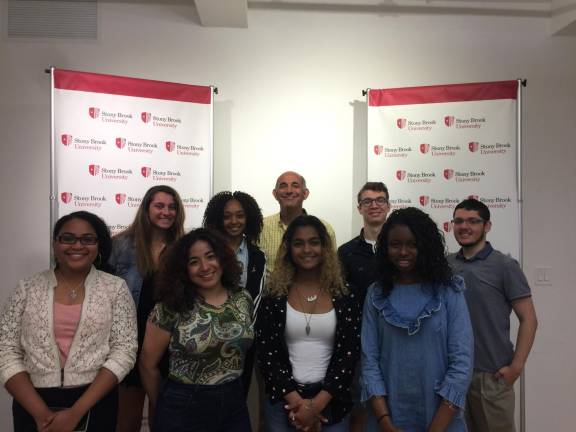Lessons in empathy
What I learned about teaching by being a student

By Jon Friedman
You’re never too old to learn something.
Take it from me.
The quality that I re-learned at my annual summer sojourn in July, during the Southampton Writers Conference, was empathy. It never hurts to get a refresher in this crucial lesson.
I teach classes in journalism and other subjects at Stony Brook University. I pride myself on being able to motivate and inspire students through encouragement, not fear.
Leaders often reflect on whether they would prefer to be feared or loved. Neither is a particularly good idea or wise pursuit. Being respected – and trusted -- is really the name of the game.
My students may think that because of my worldliness and eagerness to offer (constructive) criticism, I have the answers to their questions.
They expect me to provide The Last Word.
Well, I’d also like to think that I do! But we know the truth is that no teacher does. All you can do is tell a class what you think it should do, based on your experience and accumulated wisdom. You can lead an undergraduate to water but ... something like that, anyway.
Empathy is essential for building trust. I tell my students that I’m on their side but I won’t do the work for them. My little trick on the first day of class is to tell the students that I want to give each one of them a grade of A in the course. Predictably, at that welcomed bulletin, they turn their game from their phones to me.
And just as they’re contemplating their A, I slip in this disclaimer: “But you won’t let me! You guys will inevitably hand in homework late, if at all. You’ll fail to prepare adequately for exams. Your commitment to the class will be spotty at times. As a result, I can’t give you the A that you want.”
The self-aware students usually laugh. They understand where I’m coming from: Do the work and you’ll be rewarded. Fall short and you won’t get that A.
College can be a scary place for a teenager. I worry that cases of clinical depression and anxiety are on the rise. I worry that I won’t be able to spot the early signs or help the students find fulfillment and happiness.
I try to make it clear that I am on their side. They can confide in me about their problems in the classroom and I’ll do what I can to help them during office hours.
I remember all too well how it felt at Southampton when well-meaning classmates picked apart my work. Forget that I had a smile plastered across my face during their constructive critiques. I wanted to be told that I was brilliant. Case closed.
This is where empathy comes in.
My fragile ego was punctured at Southampton, when my well-meaning instructor, a terrific fellow, the novelist and journalist Matthew Klam, and my classmates proceeded to pick apart my submission for the class.
Oh, the kids were all right. It was as if we had all struck an unspoken bargain to go easy on one another because we’d all get our turn in the barrel soon enough. We sure did have a sense of empathy in Southampton.
I hope I can carry it over this year when I teach college students.